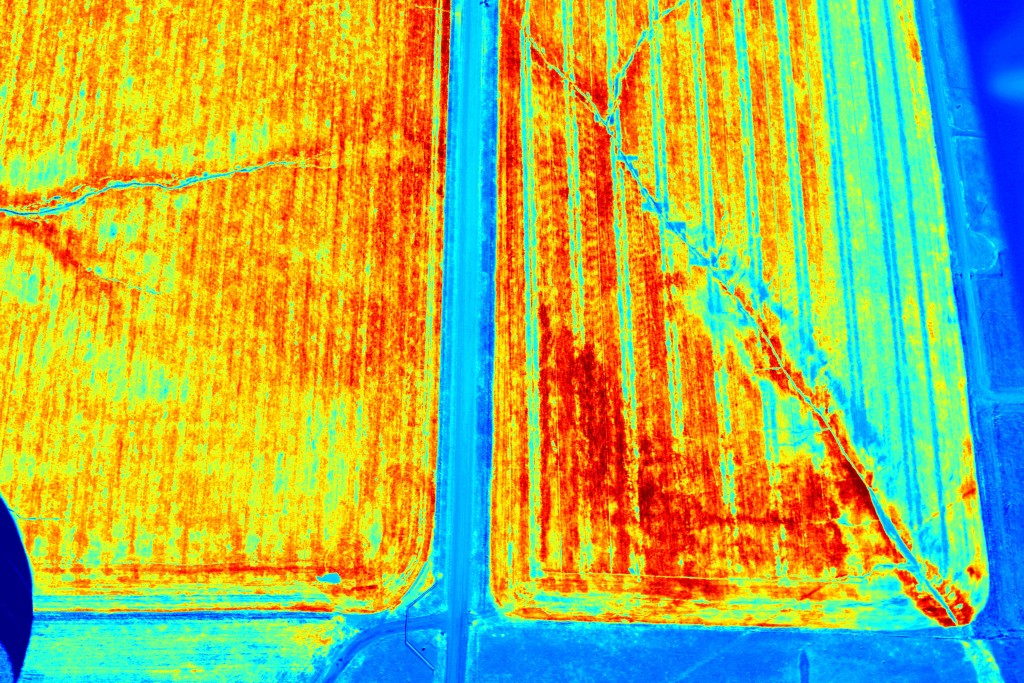
In business, the sky is the limit for Big Sky Aerial Technology—literally. This start-up company captures high-resolution aerial images for use in precision agriculture, allowing farmers to analyze the health of their crops.

Founded this year by Ron Lester and Jerred Lane, the idea to launch Big Sky Aerial Technology was inspired by the years Lester and Lane spent working with land and air-based remote sensing technologies in the Middle East.
“With some of the most amazing technologies being implemented for war, we wanted to take some of what we learned and work with it here at home,” Lester said.
But as the two started working on the business, they quickly realized that while they had plenty of experience on the technical side, they would need some help on the business side. That’s when they turned to Chamber affiliate the Denver Metro Small Business Development Center, where they enrolled in its LEADING EDGE business planning course.
We asked Lester and Lane what they’ve taken away from the course to start their business:
1. Moving from dream to reality is not an easy task.
Most entrepreneurs discover that the journey is not straight and sure; it’s more like a roller
coaster ride. “We can honestly say that in starting a business, we were lost in all the business formalities,” Lester said. While Lane and Lester have over 35 years of combined experience in aviation and engineering, when it came to actually starting the business and writing a business plan Lane says, “We had a long ways to go.”
2. It’s more than just having a great product.

“You have to have a solid product that you understand and is in demand within your market range,” Lane said. LEADING EDGE Instructor Nancy Barnett, who also owns small business training firm eL3, adds, “It is necessary to identify what is happening in your market and understand how it is influencing both your customer and your offer.” For Big Sky Aerial Technology, Lester and Lane are confident
there is a demand for their product—which will both save the farmer money and reduce the amount of unnecessary chemicals sprayed onto soils. Currently only 5 percent of farmers use this type of technology, and interest in precision farming is continuing to build among the agriculture community. “Our customer base is out there,” Lane said. “[They’re] just waiting to have a system like ours that delivers a worldclass product.”
3. A solid business plan is a must.
Some businesses are able to bootstrap, while others require outside funding. “Either way, it’s important to have a well-thought-out strategy to execute,” Barnett says. Lane and Lester are in the process of laying out a well-defined business approach so they can “build a longterm sustainable business with a successful future,” Lester said. “While we are still encountering challenges along the way, with
the help of the Denver SBDC we are able to overcome unexpected obstacles and continue on towards our goal of Big Sky Aerial Technology being a leader in the remote sensing industry.”
4. Just because you have a great idea, don’t expect banks to just give you money.
When you apply for a loan, lenders asses your credit risk based on the “5 Cs”—credit history, capacity, collateral, capital and conditions. Now that their business plan is complete, Lane and Lester are gearing up to talk to lenders, pitch at the Denver Metro SBDC’s Trout Tank, a triannual pitch event (the next is June 9), and get funded. “Once that happens, the sky is the limit,” Lester said.
5. Be ready to pivot. More than once.
“Just because you think you may have it down, start with an open mind and be dynamic, ready to tackle roadblocks that are sure to arise,” Lane said. Barnett adds, “Instead of changing your vision, which is more risky, you can pivot each component of your business model based on learning about your customers, the technology or the environment.” Eventually Lester and Lane hope to expand their company’s offerings to providing more imagery and sensor data with a fleet of aircraft.
While taking the 11-week course, they purchased their first aircraft, fine-tuned their brand and market position and continued working on sensor design and software processing. They plan to start doing business this summer.
“The next few years are going to be very promising for us,” Lane said. “Precision farming is the way of the future and we intend to help it get there.”
Alea Kilgore is the assistant director of the Denver Metro Small Business Development Center.
